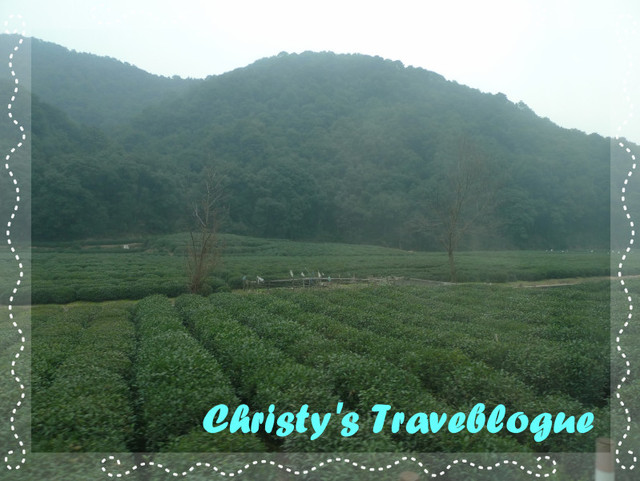
Hangzhou, famous for its many scenic spots and natural beauty, is also known as the Tea Capital of China; being home to one of the most famous, if not exquisite Longjing Tea.
Also known as the Dragon Well in its direct translation, the tea is one of the finest to represent the many types of raw or green tea in its manner. The tea is favored by many, and have earned its reputation as one of the higher standard tea due to its roots being enjoyed and praised by the royal family, and notably the famous Emperor Kangxi, who ruled during the Qing Dynasty.
The Emperor, having enjoyed the delicate and exotic purity taste of the tea, had even granted the Longjing tea the status of the Imperial Tea, or Gong Cha, thus elevating the status of the tea to that of the higher society level.
The tea continued to be appreciated by Emperor Qianlong, the grandson of Emperor Kangxi. Legend has it that the Emperor Qianlong was impressed by the quality of the tea which he had a taste of during one of his visits to West Lake; Hu Gong Temple where he granted the tea bushes a special Imperial status. There were many stories associating the Emperor Qianlong with the famous Longjing tea, but in short, the tea gained its royal reputation and status not just from the encounters with the monarchs; as the tea itself is of premium taste and quality.
The name Dragon Well is not only associated with the tea itself; which derives its name from a legend and an area with the same name. The area outside the city of Hangzhou, and to the west of the famous West Lake, is known as Dragon Well; located on the Fenghuang Hill.
Dragon Well is actually a spring; and is one of the three famous springs in Hangzhou as well.
The name of the Dragon well stems from an ancient legend about an emperor who was in disguise while on tour, dreamt of a gigantic dragon resting on the area where the emperor is staying and also across the hills which the dragon calls its home. The dragon appeared in the emperor's dream, revealing itself, which in the ancient days and according to the superstitious beliefs, is a good omen for luck and glory of the dreamer as the dragon is an auspicious figure and its presence symbolize power, might and wealth.
When the emperor wakes up from his dream, he named the whole area; including the hills and valleys; Dragon Well, or known as Longjing in Chinese.
The Dragon Well was discovered during the reigning period of the Three Kingdoms (221-280 A.D), and is associated with various legends; including one that dragons are still residing in the place, and how a immortality potion was once attempted to be concocted using the water. Due to the belief that there are resident dragons, it was said that local villagers used to visit the spring/well to pray to the dragons and ask for rainfall whenever the weather is dry or there is a drought.
The practice was due to the belief that dragons, being one of power and might, were also said to be ruling over the weather and rainfall in the ancient times.
The nearby village is the Longjing village; where the Emperor Qianlong was said to have visited on his visits in the past and conferred Imperial status to the 18 tea bushes standing there at that time. The village is also home to the many Longjing tea plantations due to its mountainous and valley areas.
A visit to a tea plantation is definitely a must to complete a tour to Hangzhou. After all, it is the Tea Capital of China and therefore there is no way one can miss even a short trip to a tea plantation, tea house or even a tea garden.
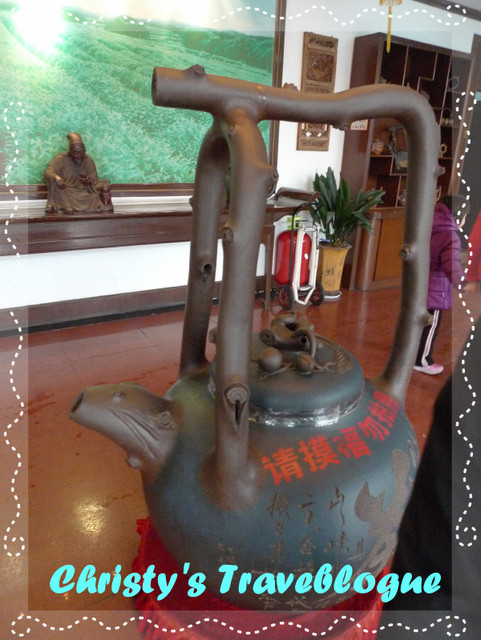
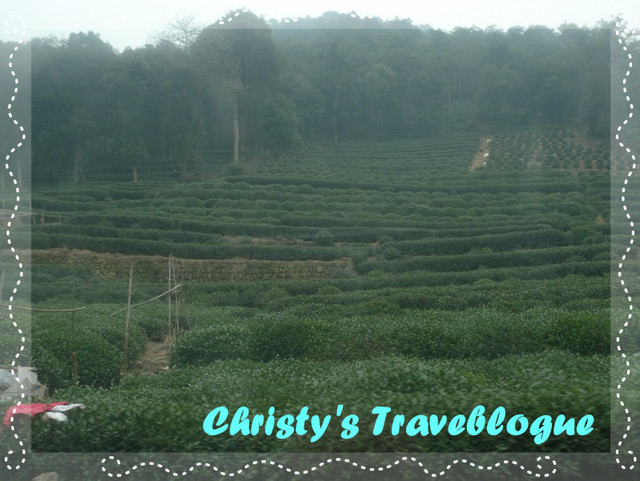
Our tour guide led us to the hilly area spread with lush greenery which made up the vast area of tea plantation.
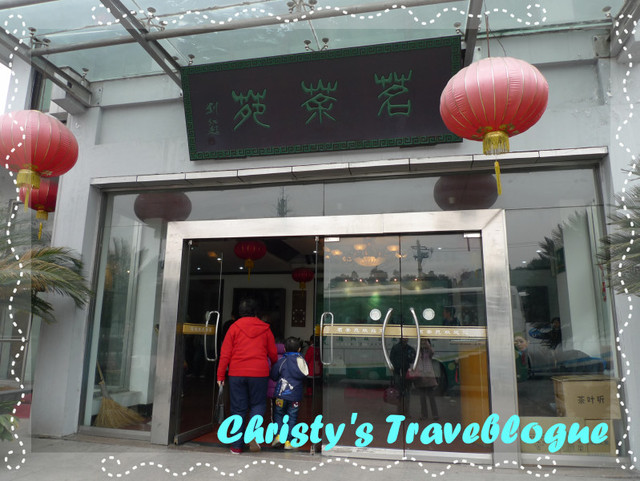
A stop at the local tea garden/house near the plantation provided an insight into the origins and types of Longjing tea, as we were enlightened on the benefits of this exquisite tea.
Longjing tea was also brewed and served to us on the spot, for us to enjoy that taste of the splendid Imperial tea.
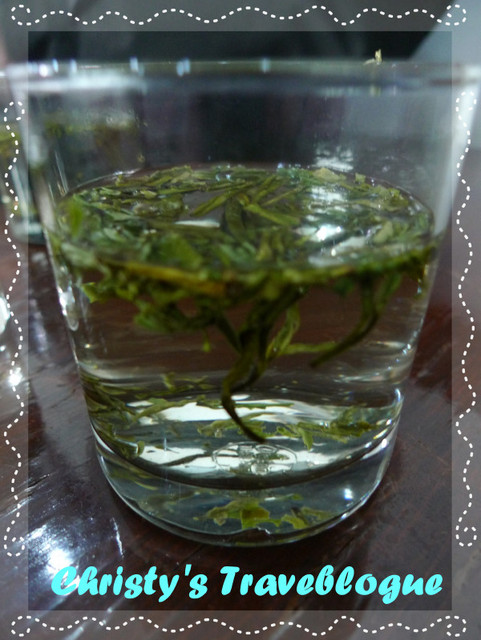
The tea is also categorized into seven different grades used to define its quality; from Superior, Special and then into numerals of 1 to 5.
We were taught to tell the different types of quality through the live demonstration by the skilled workers.
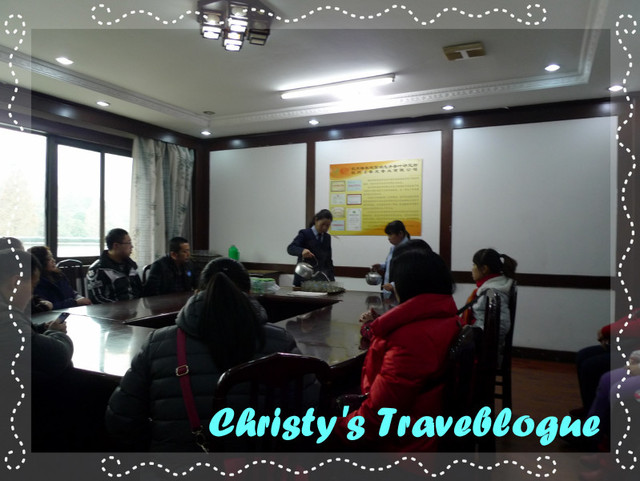
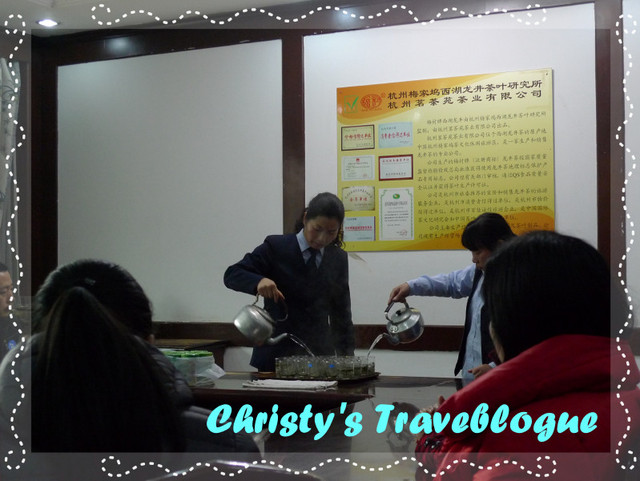
The color and shape of the tea leaves are the earliest indicators; where the light green color, flat and tight shapes of the tea leaves tell of a higher quality.
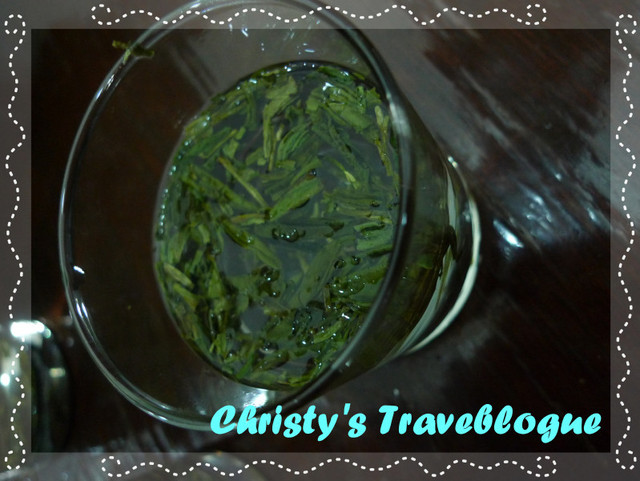
Infusion is recommended at approximately 75 °C; whereby the water should be warm but not too hot to maintain the nutrients of the tea. Following the infusion, the quality of the tea could be predicted based on the appearance of the uniformity of the tea leaves in the water and cup.
The infused tea leaves could also indicate the maturity level of the tea leaves, thus giving clues to the grade of the tea.
The time or months when the tea leaves is plucked determines the grade of the tea leaves.
For instance, the Emperor, or Superior grade of the tea refers to tea leaves which are plucked during the definite period between late March to early April where the tea leaves are also considered 'white tea'. Only the newest tea leaves on the top are picked by hand, and then baked by hand too and this is definitely the most expensive tea due to its quality.
The tea leaves harvested between April to June are then referred to green tea and though worthy, are still comparably lower in price compared to the earlier batch, and that too, depends on the particular month in which they are plucked.
The Longjing tea, although a type of green tea, is also lightly roasted like most other Chinese teas, to deter the fermentation of the tea leaves. However, the Longjing tea is considered unfermented and categorized as a type of white or green tea due to the fermentation process stopped before it turned black like other teas.
As such, the Longjing tea boasts of natural antioxidant properties, along with amino acidss, vitamins and detoxifying benefits.
A good cup of Longjing tea is best brewed with the pure and clear water from the Hupao Spring, as mentioned in my previous post
It is said that Longjing tea is often recommended when one needs to relax or just chill out, as the taste of the tea sends a certain soothing feeling to the drinker.
Beware of the fraud Longjing tea leaves as there are scrupulous merchants out there who will mix the tea leaves, repackage and sell them at premium prices.

No comments:
Post a Comment